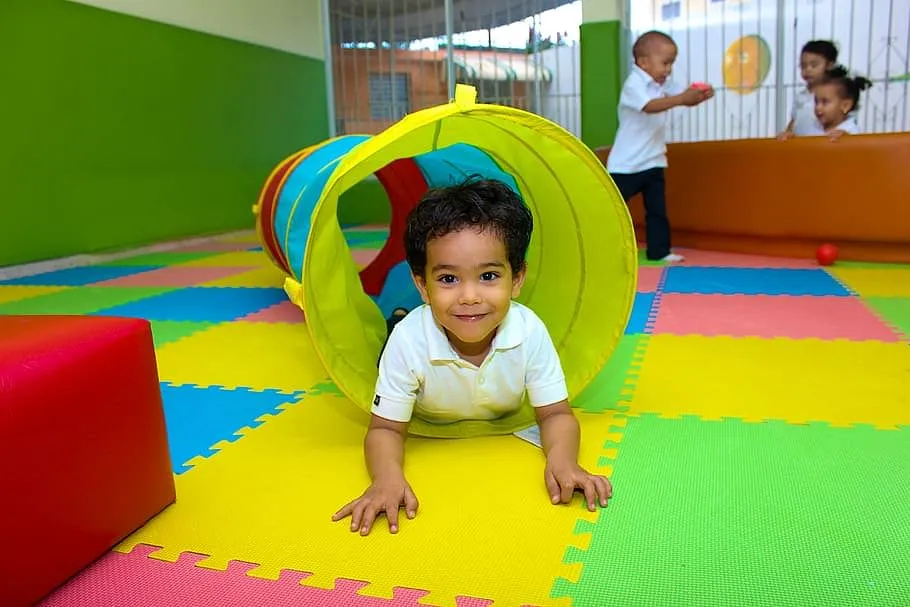A strong foundation makes a strong edifice. For the developed human resource we must nurture strong minds.
Our real capital is children so we invest in them. NEP 2020 has laid emphasis on this foundational stage and has realistically given a new structure of foundational education; five years commencing from 3-8 years.
It is a fact that maximum brain development takes place in this span of time. In this backdrop NEP 2020 has laid importance on universalisation of early childcare and education commensurate with the fourth goal of sustainable development.
The basic concept of Kindergarten has been laid down by Froebel which is working successfully in various countries. He was a German educationist who originated the Kindergarten curriculum. The term kindergarten originated from the German word which implies a Child’s Garden.
He viewed the school as a garden, the teacher a gardener and a child a tender plant which needs care and caution on part of the teacher to create specific conditions to help the child in yielding the best possible results. Teacher’s best efforts assist the child to develop according to the laws of his nature to attain levels of intelligence.
Kindergarten is a special educational environment in which self activities are encouraged for the development of children to externalise latent life force through these activities. Froebel has envisioned that play gifts need to be kept in the immediate environment of a child. Through playing they can express their innermost thoughts, needs and desires.
Froebel’s pedagogical ideas have a mystical and metaphysical context. He viewed man as a child of nature who must learn to understand his own unity, diversity and individuality through play, which easily facilitates children to learn the process of cultural recapitulation, imitations from the environment.
Froebel has identified that play gives the fundamental and symbolic meaning which stimulate children to bring the fundamental concept that they represent. Kindergarten teachers must be ace, alert and active so that they will develop the social side of a child and sense of readiness for learning.
Kindergarten teachers must involve children in constructive play and self activities in early childhood. The self study, discovery based pursuits, play way, mother tongue gestures and multilingual constructions are ideal prescription for ECCE.
The broad objectives of ECCE are to ensure each child is valued, respected, feels safe and secure, and develops a positive self concept, a sound foundation for physical and motor development, imbibe good nutrition routines, health habits, hygiene practices and self-help skills and enable children for effective communications.
The NEP 2020 revisited the Kindergarten concept to bring out best from Child’s body, mind and soul to meet international educational demand in the twenty first century.
NEP proposed a uniform child centered ECCE curriculum that is in sync with kindergarten concept in order to prepare children for rigours of formal curriculum of reading, writing, arithmetic and, EVS in subsequent preparatory stage.
This is possible when a strong foundation of holistic multifaceted and discovery based learning experiences are tested in kindergarten so that cognitive, social, emotional, creative and physical domains thrive.
NCERT has been nominated a nodal body for formulating and framing the National Curricular and Pedagogical Framework for early child care education for children up to the age of eight.
The said curriculum will be pivoted on five Cs – communications, critical thinking, creativity, collaboration, and character building skills.
Vision ECCE ideally consist of flexible, multifaceted, multilevel, play based, activity based and discovery based learning; flexible learning choice based learning according to aptitude, talent and interest of child. Foundational literacy is a must at this period which takes cognisance of core points of NEP.
It is proposed that teachers need to ensure that children must be effectively taught the basic language and numeracy skills in the foundational and preparatory stages.
Foundational literacy envisages that at the culmination of class 3rd a school based assessment will be conducted to assess the foundational literacy and numeracy skills of all the learners, the standard for this will be established by the new national assessment center PARAKH – performance assessment review and analysis of knowledge for holistic development.
The basic focus of NEP at this stage is to make a shift from rote memorisation to competency based assessment. Need of the hour is to revamp the erstwhile ECCE system and infuse new life in it to build strong educational system on the strong foundational stage.
In this regard Govt is actively rejuvenating the Anganwadi centres and establishing Kindergarten classes in Govt schools to strengthen the ECCE and child development at this formative stage.
Balvitaka, pre primary schools and Anganwadi schools will be developed on modern lines and trainings and teaching aids will be provided to adopt kindergarten pedagogy in contemporary period.
ECCE is an indispensable foundation for lifelong learning development and learning within a protective and enabling environment which will have lasting impact on entire future life.
Disclaimer: The views and opinions expressed in this article are the personal opinions of the author.
The facts, analysis, assumptions and perspective appearing in the article do not reflect the views of GK.






